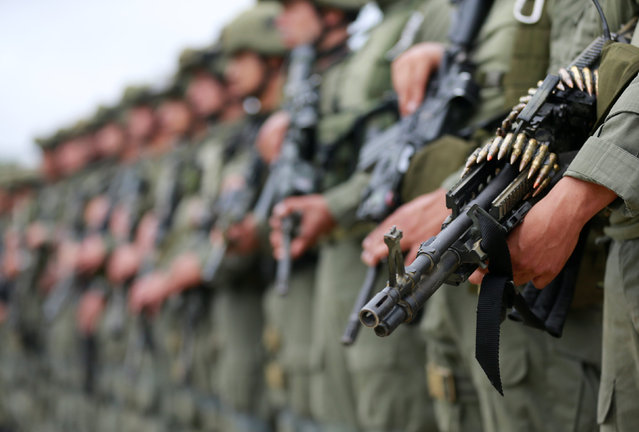
Colombian anti-narcotics police officers stand in formation before the embarking on anti-narcotics operations in San Jose del Guaviare, Colombia, August 2, 2016. Colombian law enforcement has destroyed 104 cocaine laboratories capable of producing some 100 tonnes of the drug annually, the head of the anti-narcotics police said on Tuesday. The operation, conducted over five days in the country's southeastern jungle region, is part of new government strategy focused on combating drug production as well as the cultivation of coca, the base ingredient of cocaine. The laboratories were burned down by police commandos. (Photo by John Vizcaino/Reuters)
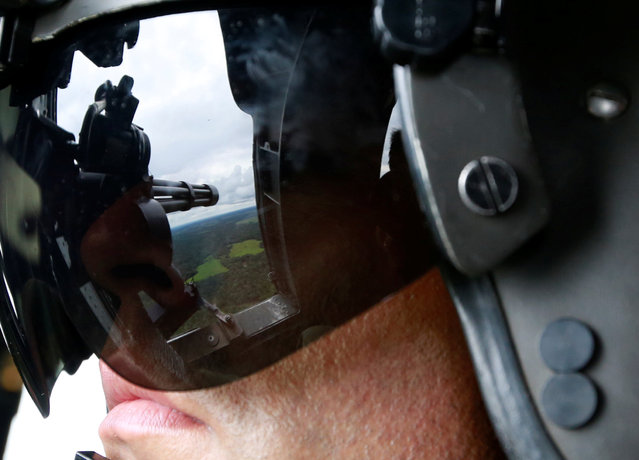
A Colombian anti-narcotics policeman prepares to disembark a helicopter in a rural area of of Calamar in Guaviare state, Colombia, August 2, 2016. (Photo by John Vizcaino/Reuters)
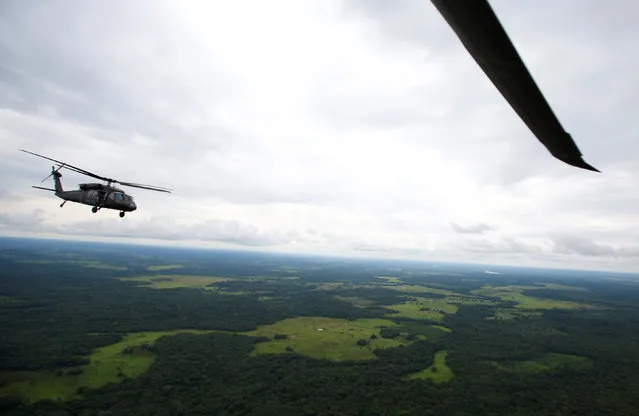
Helicoptes fly over in San Jose del Guaviare state, after burning a cocaine lab, which, according to the police, belongs to criminal gangs in a rural area Calamar near in Guaviare state, Colombia, August 2, 2016. (Photo by John Vizcaino/Reuters)
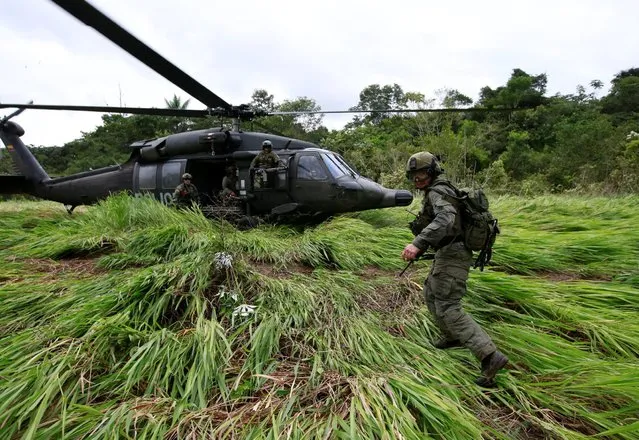
A Colombian anti-narcotics policeman takes position as he waits to board a helicopter in a rural area of Calamar in Guaviare state, Colombia, August 2, 2016. (Photo by John Vizcaino/Reuters)
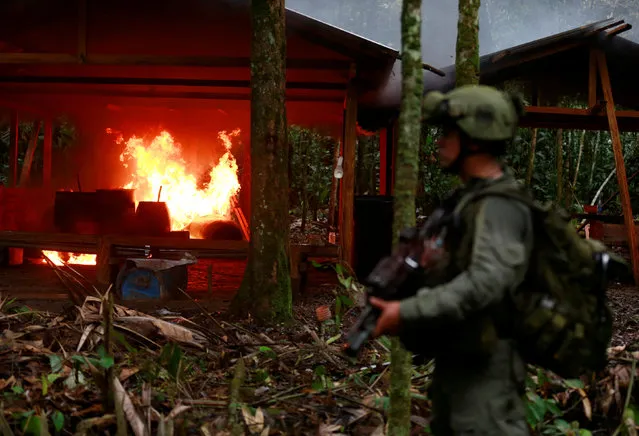
A Colombian anti-narcotics policeman stands guard after burning a cocaine lab, which police said belongs to criminal gangs, in a rural area of Calamar in Guaviare state, Colombia, August 2, 2016. (Photo by John Vizcaino/Reuters)
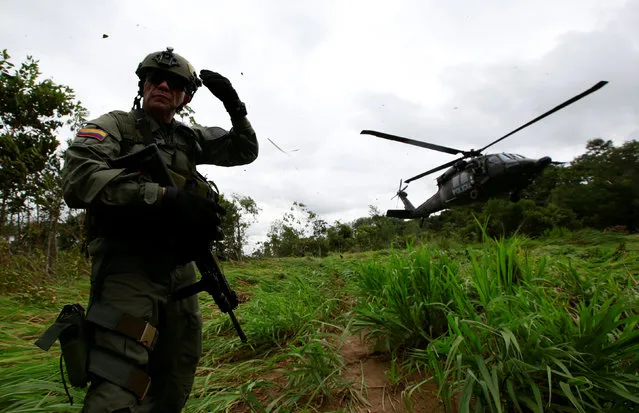
A Colombian anti-narcotics policeman taks position as he waits to board a helicopter in a rural area of Calamar in Guaviare state, Colombia, August 2, 2016. (Photo by John Vizcaino/Reuters)
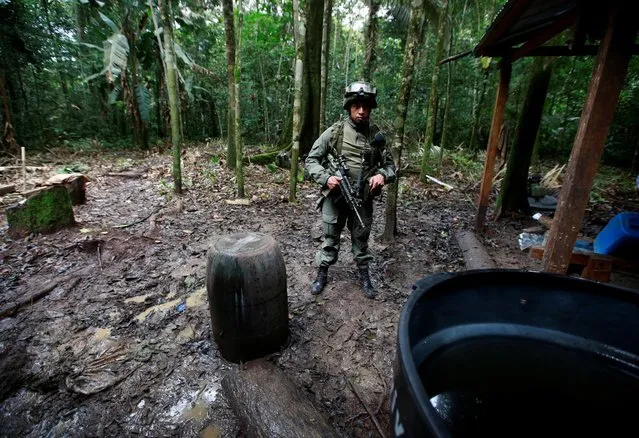
A Colombian anti-narcotics policeman guard a cocaine lab, which, according to the police, belongs to criminal gangs in rural area of Calamar in Guaviare state, Colombia, August 2, 2016. (Photo by John Vizcaino/Reuters)
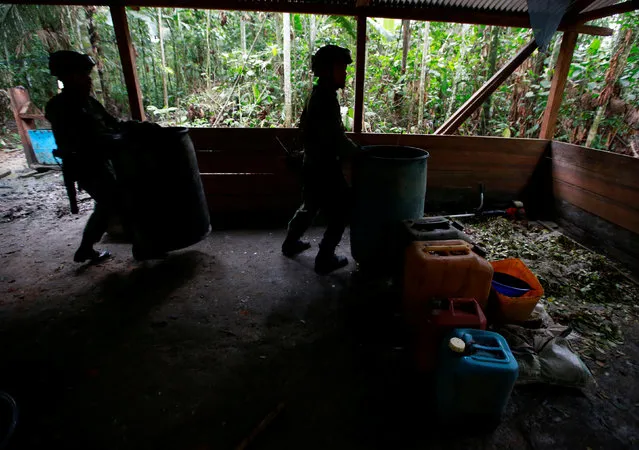
Colombian anti-narcotics policemen lift barrels in a cocaine lab, which, according to the police, belongs to criminal gangs in rural area of Calamar in Guaviare state, Colombia, August 2, 2016. (Photo by John Vizcaino/Reuters)
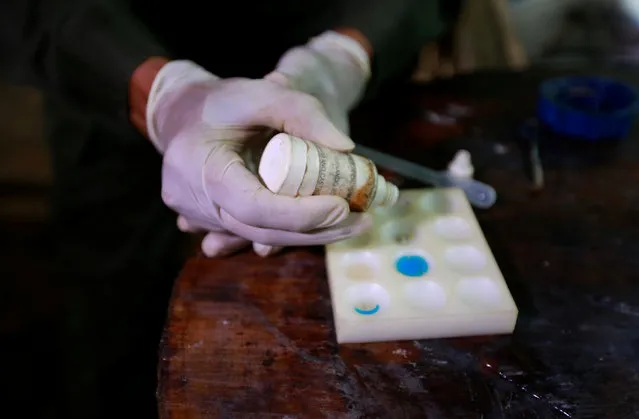
A Colombian anti-narcotics policeman takes a sample of cocaine at the cocaine lab, which, according to the police, belongs to criminal gangs in a rural area Calamar in Guaviare, state Colombia, August 2, 2016. (Photo by John Vizcaino/Reuters)
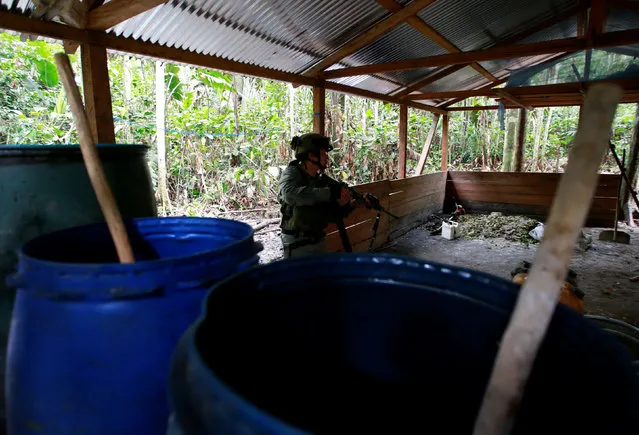
A Colombian anti-narcotics policeman guards a cocaine lab, which, according to the police, belongs to criminal gangs in rural area of Calamar in Guaviare state, Colombia, August 2, 2016. (Photo by John Vizcaino/Reuters)
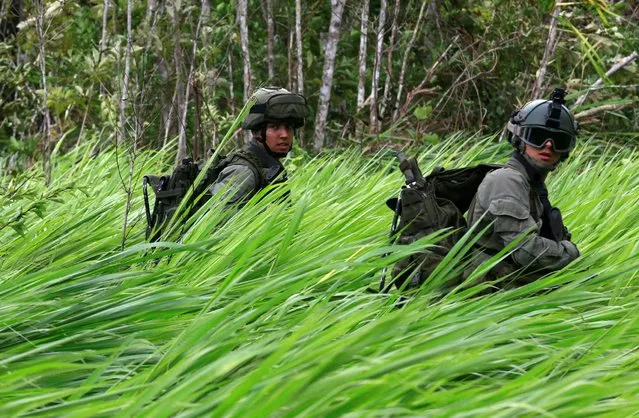
Colombian anti-narcotics policemen take position as they wait to board a helicopter in a rural area of Calamar in Guaviare state, Colombia, August 2, 2016. (Photo by John Vizcaino/Reuters)
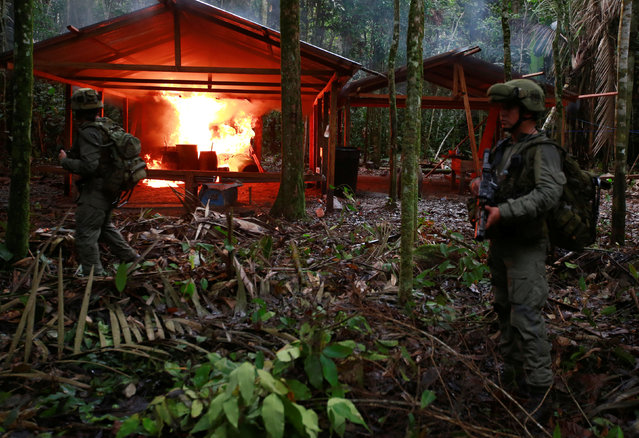
A Colombian anti-narcotics policeman stands guard after burning a cocaine lab, which police said belongs to criminal gangs, in a rural area of Calamar in Guaviare state, Colombia, August 2, 2016. (Photo by John Vizcaino/Reuters)
03 Aug 2016 11:28:00,
post received
0 comments
